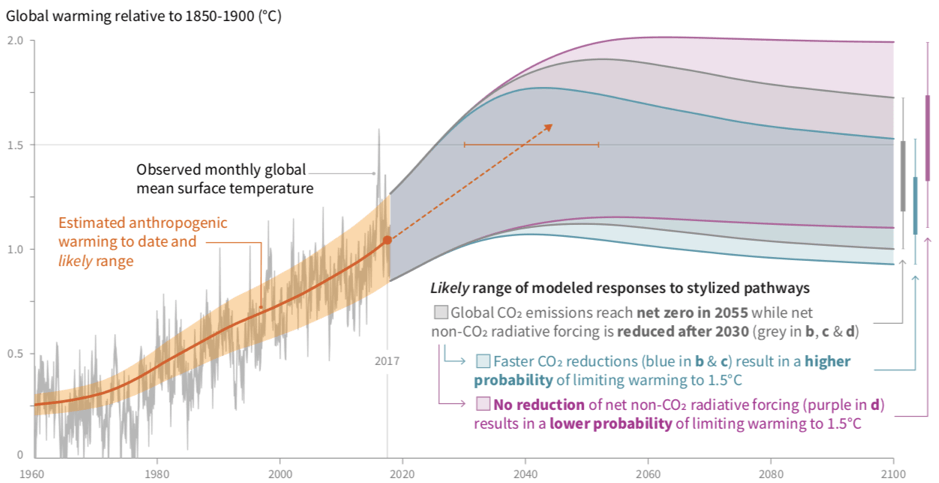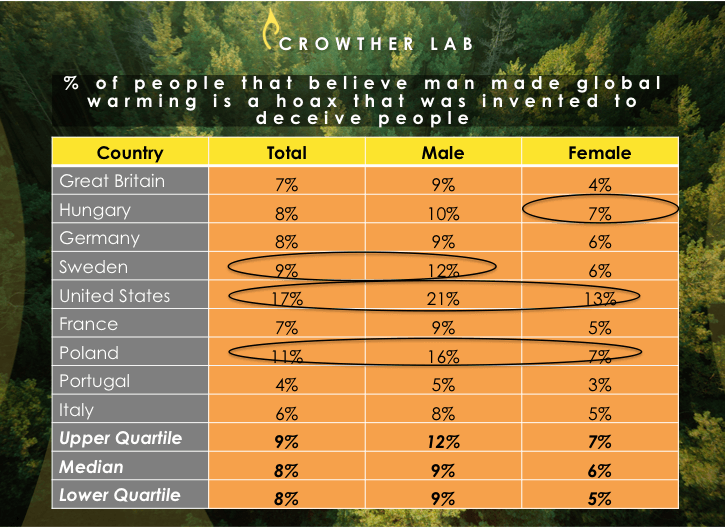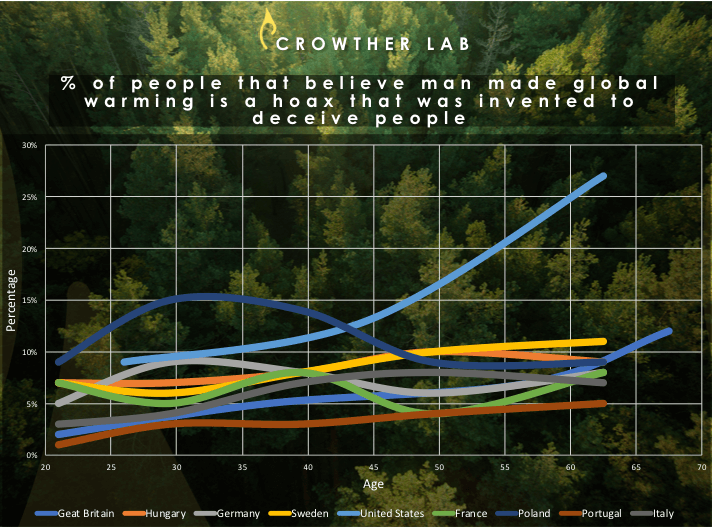By Tom Elliott
In 1896, Svante Arrhenius, a Swedish chemist and future Nobel laureate, deduced that the combustion of coal and petroleum could raise global temperatures. In 1939, a British steam engineer named Guy Stewart Callendar found, at the weather stations he was monitoring, that the previous five years were the hottest in recorded history. Hum
ankind, he wrote in a paper, had become “able to speed up the process of Nature”.
Almost 80 years later, with the benefit of hindsight (and considerably more observed data) a panel of the world’s foremost scientists (the IPCC) concluded that humankind has indeed sped up the process of nature, and, by releasing CO2 from the ground, increased the Earth’s temperature by approximately 1C since the pre-industrial period (1850 – 1900).
They used this figure to illustrate the urgency of the matter on the cover of their report:

Despite all the data about the past, the latest models predicting the future and great efforts by many (including James Hansen, the United Nations and countless NGOs, among others) there has been no change in the above trend. While humankind is able to speed up the process of Nature, it is not able to slow it down, or even maintain it at a steady state. The IPCC scientists predict that humankind will control their influence on Nature, but only because they have to. Going by past form, the influence will only accelerate further.
As positive minded employees of the Crowther Lab, dedicated to promoting and believing in natural climate solutions, we have to trust that at some point humankind will see the cliff-edge it is accelerating towards and pull back, en masse. The answer is when (we know how).
Last month YouGov issued the results of their questionnaire surveying the populations of nine countries and their attitudes towards conspiracy theories. Given the above, I was intrigued to see the results of one question in particular, do you believe the following statement to be true?
“The idea of man-made global warming is a hoax that was invented to deceive people”
One of the problems of achieving progress in a forum like the United Nations is that consensus is needed across all participants before any global agreement can be reached. As we’ve seen at COP24 it only takes c.2% (four out of 196 countries) to stifle negotiations.
Whilst views on global warming are much more varied than a simple true or false, the percentage of population that believe global warming to be a hoax could be a useful barometer as to how seriously politicians will commit to resolving the issue. Whilst I don’t intend to do any analysis on the reasons, below we have summarised the total results.

We’ve highlighted those countries within the upper quartile of the nine countries surveyed. It is perhaps no surprise that the United States stands out in its views on global warming, but I was taken aback by the size of the margin. After removing the other two highest countries, more than double the proportion of the US population believes global warming is a hoax when compared to any of the remaining six countries. Expressed in real terms, 17% equates to approximately 56 million US citizens. That would be the sixth largest country in Europe; smaller than Italy, slightly larger than Spain. Within Europe, Poland stands out – which may relate to its position as the largest (per capita) producer of coal in Europe – as well as Swedish men and Hungarian women.
We also analysed the results by age:

As you might expect there was a slight positive trend across the ages surveyed (early 20s to 55+), with a higher percentage believing global warming is a hoax amongst the older generations. This was particularly prevalent in the US, where an astonishing 27% of 55+ year old’s believed the statement to be true.
Perhaps more worryingly for the future, Poland’s population bucks this trend, with 15% of 25-49 year old’s believing the statement to be true (compared to 9% of the 55+ category).
In order for us to achieve real action on climate change and alter the historic trend line of the IPCC’s graph I believe the proportion of populations believing this statement needs to be less than 5% across the board. So recognition should go to Portugal for doing just that!
We all have a role to play in educating our friends, families and colleagues – and over time that should translate into action!
